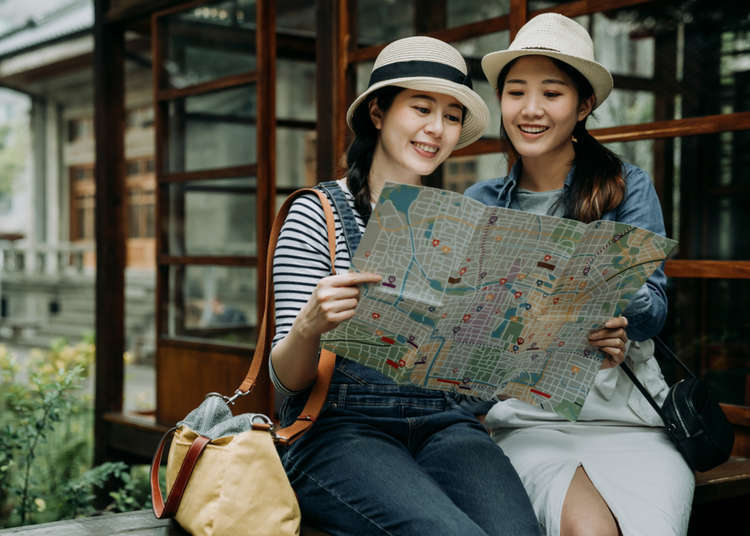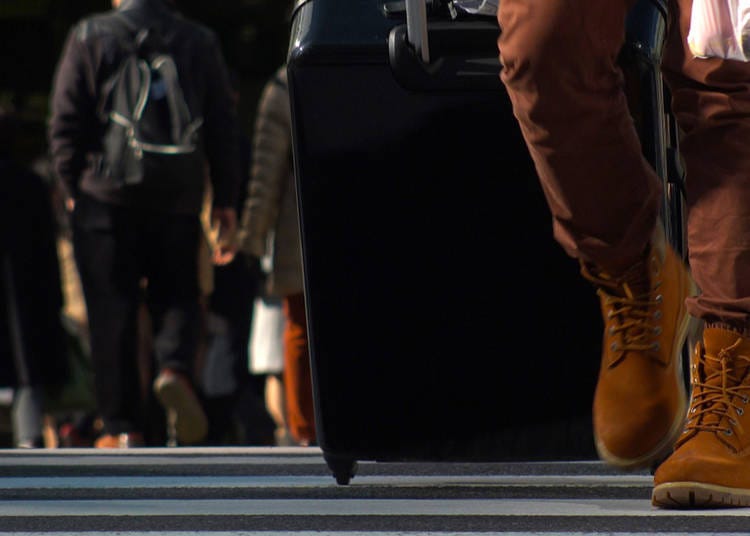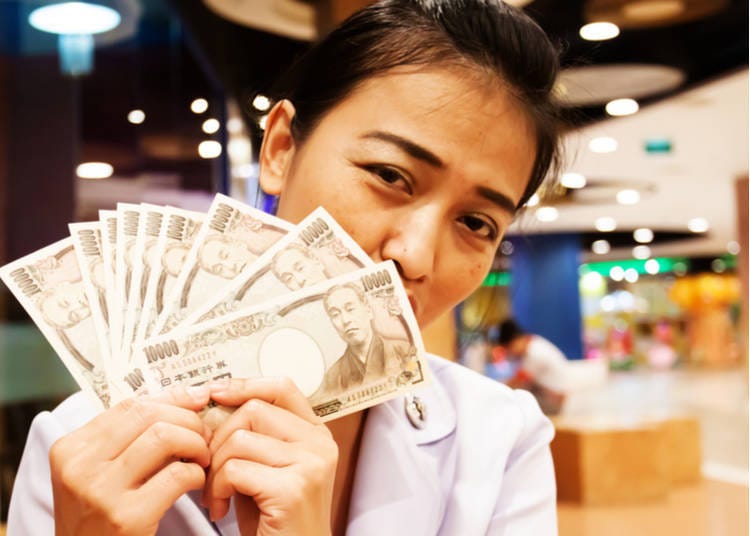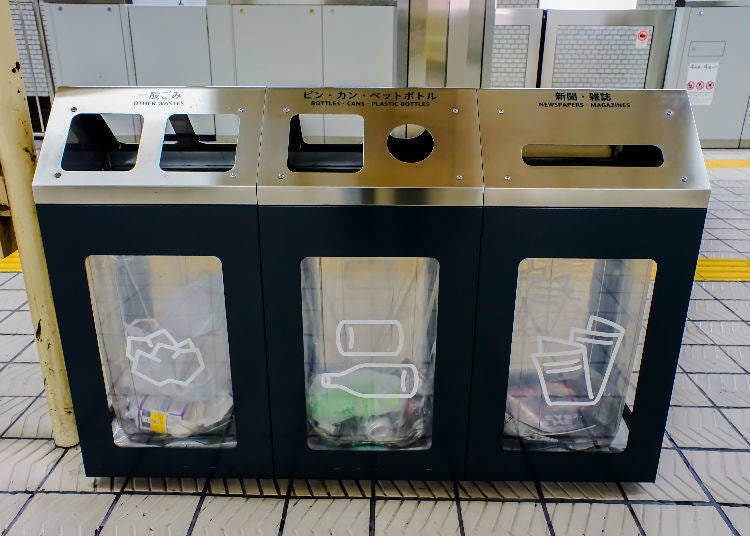
The first to become a first-world country in Asia, Japan boasts one of the world’s top economies. What kind of image does such a country have amongst foreigners, and how does it compare to a local’s perspective? Here, a Japanese man in his 20s shares his opinions.

“Japanese are kind and gentle.”
“A country with excellent public order.”
“Plenty of tourist locations.”
“Do they eat sushi every day?”
“Are there still samurai in Japan?”
...and the list goes on. Each have their own image of the land of the rising sun. Anyhow, many visitors carrying such expectations of the country visit Japan. To these expectant visitors, some Japanese, including the author of this article themselves, have things they want to tell, as well as some things they would like these visitors to understand beforehand.
In a sense, while it might spoil the image of Japan, there are some things that have to be said to avoid any trouble during the actual trip. For this article, a Japanese national will talk about the 4 biggest things he thinks Japanese want foreigners to know.
1. Not all Japanese are kind

It is widely believed that Japanese people are kind to strangers, and in reality, it is true that many Japanese call out to lost-looking foreigners and use body language to communicate where they should go, even if they are spoken to in in English or another language they don't understand. This kindness is not limited to Japan, and you’re likely to find similar things elsewhere in the world as well.
Nevertheless, this is not reflective of all of Japanese society. A strikingly obvious example would be how even if they see someone looking lost or troubled, most Japanese would not make the first approach. As to why this is the case, most Japanese nowadays prioritize avoiding unnecessary contact with others. Helping others or stepping out would get one dragged in, and who knows what kind of dangers sleep within? In other words, a good number of Japanese people prioritize self-protection above all else.
Of course, there are times where Japanese people act on the kindness in their hearts. Basically, most Japanese people are troubled by the conflicting ideas of “needing to help people in need” and “not wanting to get involved in something troublesome”.
Only after a spell of deliberation do they let their sense of duty take over and offer a helping hand. Public order in Japan is extremely well maintained, and strangers are more often than not kind. On the other hand, expecting immediate and warm responses when one needs help is a sure path to feeling disappointed by the difference in expectations if one were to visit Japan with these stereotypes. Do take note.
2. The roads are not suitable for dragging luggage along

Upon arrival in Japan, you’re more than likely to be carrying bulky items such as suitcases and carry bags. However, most of the places in Japan are not suitable for bringing such large luggage around. Especially metropolises like Osaka and Tokyo, where space is scarce, people carrying luggage often end up hindering the flow of movement in the key areas.
For a specific example, consider how public transport such as trains and buses will get their time extended. On the metro and older railroad lines, the train cars generally do not have areas meant to store or leave your luggage. However, the front and back cars often have more space than the other cars, and as such it is standard practice for people with suitcases and luggage bags to board there.
Despite the above, it becomes very difficult for people sitting down in crowded trains to get up. Needless to say, the morning and evening rush hours are unreasonably congested. Too many times have people in Tokyo experienced being unable to board the trains because it’s too crowded. During your stay, if you have to board a train along with your luggage, it is advisable to plan it at an appropriate timing to avoid the rush hour.
Furthermore, it’s even more difficult to guarantee space in the buses that run through the city. With practically no space for large baggage, it is recommended to avoid taking buses entirely. If one has to take a bus, one might as well plan out an alternative route to one’s destination through buses or taxis instead. If the destination is really far, consider a high-speed bus that has a large trunk specifically for luggage.
3. Many Japanese are not fluent in English

Perhaps the biggest thing that should be let known is that most Japanese are not fluent in English. While it might already be 20 years since the globalization and international development of Japan, it remains a fact that most Japanese do not get much exposure to the English language. In many ways, English is not necessary to their daily life. Of course, there are many Japanese who are fluent in English (especially in large cities), but the fact remains that there are many who are quite rusty in the language.
The state of English in Japan is possibly one of the higher obstacles in one’s visit to the country. For example, let’s say you’re trying to eat at a restaurant. The staff are almost all Japanese, and none of them can receive customers in English. While several solutions such as making the menu multilingual, making the staff undergo basic training in English, and hiring foreign staff, these are not perfect solutions and are often found only in larger cities or in the more touristy areas.
Speaking from the author’s personal experience, just a few days such a problem occurred. When the author went to their usual ramen shop, a western couple came into the shop. The two were only fluent in English, and they were unable to read the menu written in Japanese.
The guy asked “What do you recommend?” In response, the shopkeeper snapped in Japanese, “I have no idea what you’re saying! I’m busy right now, so just order something or get out!” While the couple could not understand what was being said, they could clearly feel his displeasure. With a disappointed expression, they left the shop.
This rude behavior can at times be seen among small establishments. Naturally, this is not a reflection of every restaurant. It is, however, a reality for many of them as they are confronted with customers who they cannot understand.
Those intending on visiting Japan should try to remember basic Japanese phrases before their trip, as well as download a voice translator application on their smartphone.
4. Japanese yen in cash is essential

Compared to other first world cities, Japan has not advanced as much on the cashless aspect. For example, in 2018 America had a cashless payment service ratio of 46%, while Korea had 89.1%. In stark contrast is Japan with a jarring 18.4%. Even now, 80% of Japanese use cash when they go shopping.
With the coming Rugby World Cup and the Tokyo Olympics, Japan is trying to make progress with regards to their cashless services. However, the situation is still lacking at best. As such, it would behoove of those visiting to prepare more cash for their visit, and lose the mentality that cashless payments can be made everywhere.
Below are some common situations where you can only pay in cash:
-When buying from vending machines
-When buying tickets at the station
-Buying meal coupons from the ticket machine in Ramen shops (including chains)
-Private restaurants
-Medical examples
While not everything can only be paid in cash, there are definitely more cases where one is unable to make cashless payments. Moreover, depending on the region there may be places completely not fitted with cashless services. One should take ample precaution.
In regards to whether cashless services are provided, it’s often fastest to look at the cash register or ticket machines to see if they have the credit card sticker or something similar. If you don’t see it, try using the phrase “Kaado wa tsukaemasuka” which is Japanese for “can I use my card” to check with the staff. No matter the case, cash in Japan is indispensable. Exchange some yen at the many money changers such as the airport.
5. There aren't many trash cans

“How is Japan so clean even though there aren't many rubbish bins?!” This is something commonly heard by tourists visiting Japan. For many, it is even one of the first things they notice! So just how can such a large city like Tokyo stay clean without many places to throw away garbage?
During the morning rush hour on on March 20, 1995, the Tokyo subway fell victim to a deadly domestic terrorist attack using lethal sarin gas. The attack was organized by members of Aum Shinrikyo cult and it injured over 5,000. Because sarin gas is odorless and colorless, many affected by the attack did not realize until they began having symptoms later on.
While cult members were eventually arrested, many people were scared of further attacks. As one measure, trash cans were taken out of many public areas (especially train stations) to prevent a similar recurrence.
Now, over 20 years later, Tokyo still has very few trash cans and stations and airports are still always on alert for suspicious items or anything that could be possibly linked to further incidents. Although you may have to search a bit, many train stations will still have trash bins that you can use, usually in front of the ticket gates. Some stations won't, so it might be best to be ready to carry your garbage a little bit longer!
While it is likely that you will have to carry your garbage around at some point when you are here in Japan, knowing the information listed above can hopefully make your trip all the easier.
After reading this article, it's possible that some readers might become disillusioned with Japan. While these opinions may be slightly negative, one should now have a clearer view of the “real Japan”, and be better positioned to avoid unnecessary trouble during the trip. We hope that by understanding these 5 points, you will be able to enjoy Japan to the fullest extent.
*Prices and options mentioned are subject to change.
*Unless stated otherwise, all prices include tax.
Popular Tours & Activitiess
-
Ad

Japan’s Land of Yokai Monsters and Spooky Stories! A Deep Journey to Mysterious San’in (Tottori & Shimane) for Seasoned Travelers
-
Ad

The Whisper of a 1,300-Year-Old History: Meet the Other Face of Nara at Night
by: Shingo Teraoka
-

Farewell, Heavy Suitcases! Keisei Ueno’s New Service Makes Your Last Day in Tokyo Totally Hands-Free
by: Guest Contributor
-
Ad

5 Recommended Wagyu Yakiniku Restaurants in Tokyo: Signature Dishes, Premium Beef, and Secret Sauces
-

PokéPark KANTO Is Finally Open! Tokyo's New Pokémon World Starts Before You Even Arrive (2026)
by: Guest Contributor
-

To the Holy Land of Kawaii! Odakyu Tama Center Station Is Becoming a Dreamy Sanrio Wonderland
by: Guest Contributor
-

Only in Tokyo: Top 5 Cute & Original Instagrammable Spots in Harajuku!
-

Exploring Tokyo Station: 11 Must-Visit Spots Around the Heart of Tokyo
-

Tokyo Tsukiji|Tsukiji Area Map & Sightseeing Information
-

Weird Ways Japan's Cherry Blossom Season Amazed Canadians - 'I Will Never Forget That Scene!'
-

BicCamera Shibuya East Store: Top 5 Most Popular Home Electronics for Foreigners
-

Healthcare in Japan for Tourists: What to Do When You Get Sick or Injured in Japan
- #best ramen tokyo
- #what to buy in ameyoko
- #what to bring to japan
- #new years in tokyo
- #best izakaya shinjuku
- #things to do tokyo
- #japanese nail trends
- #what to do in odaiba
- #onsen tattoo friendly tokyo
- #daiso
- #best sushi ginza
- #japanese convenience store snacks
- #best yakiniku shibuya
- #japanese fashion culture
- #best japanese soft drinks


















